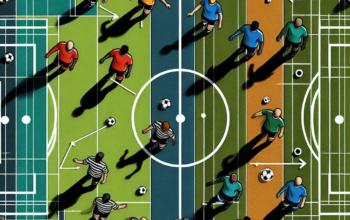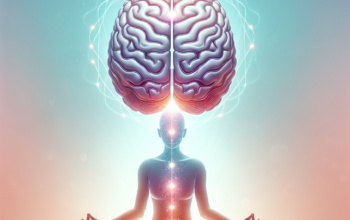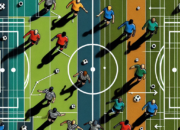Introduction
Injuries can be a significant setback for athletes, both physically and mentally. As of 2025, a growing understanding of the psychological impact of injury recovery has emerged, emphasizing the need for tailored mental health strategies. Athletes often face periods of frustration, isolation, and uncertainty, leading to detrimental effects on their overall mental well-being. Maintaining mental health during injury recovery is crucial not just for the athlete’s return to their sport but also for their long-term emotional resilience. In this article, we will explore effective strategies for athletes to uphold their mental health during injury recovery.
Understanding the Psychological Impact of Sports Injuries
Athletes often view their identities as closely tied to their performance and physical capabilities. The moment an injury occurs, this self-concept can be severely challenged. Emotional responses, including shock, anger, and denial, are common. Prolonged physical absence from their sport can lead to feelings of inadequacy and a loss of purpose. This psychological turmoil is further amplified by societal pressure to return to competitive form quickly, leaving many athletes feeling isolated and misunderstood.
Recognizing the mental health implications of injury is the first step toward developing effective strategies. Psychological conditions such as anxiety, depression, and stress often manifest when athletes are forced to confront their limitations. Studies have shown that athletes suffering from injuries may experience higher rates of suicidal ideation and other mental health disorders. By understanding these challenges, athletes can better navigate their recovery journey with the appropriate support and coping strategies in place.
Effective Communication with Healthcare Providers
Open communication with medical professionals is vital during recovery. Athletes should not hesitate to discuss psychological concerns alongside their physical rehabilitation. Engaging healthcare providers in conversations about both physical and mental well-being can create a more holistic approach to recovery. Sports psychologists, physical therapists, and general practitioners should work together to tailor a recovery plan that includes mental health considerations.
Moreover, establishing a supportive network that includes coaches, teammates, and family members can further aid mental health. Athletes benefit from discussing their feelings and experiences openly, fostering understanding and compassion from their support communities. These discussions can help combat feelings of isolation and pave the way for a more successful recovery, laying the groundwork for a positive mental attitude.
Developing a Structured Recovery Plan
A well-defined recovery plan not only addresses physical rehabilitation but also incorporates mental health strategies. Athletes should collaborate with healthcare professionals to create a comprehensive plan that outlines goals—both physical and mental. Setting short-term objectives can provide motivation and a sense of accomplishment throughout the recovery process. Regularly assessing these goals and making necessary adjustments ensures that athletes remain engaged and focused.
In addition to structured goals, incorporating variety into the recovery process is essential. Athletes can engage in cross-training, alternative workouts, and mindfulness practices such as yoga or meditation. These activities not only keep one physically active while injured but also promote mental well-being, reducing stress and anxiety. Working on new skills or activities unrelated to their primary sport can inspire creativity and foster a positive mindset, enhancing overall emotional recovery.
Engaging in Mindfulness and Mental Skills Training
Mindfulness practices are among the most effective strategies for maintaining mental health during injury recovery. Mindfulness encourages athletes to focus on the present moment, reducing anxiety related to future performance or the loss of identity associated with injury. Techniques such as meditation, deep breathing, and visualization can enhance an athlete’s mental resilience, allowing them to cultivate a more positive outlook.
Incorporating mental skills training into an athlete’s routine can further boost their mental health. Techniques like goal-setting, self-talk, and visualization can empower athletes to regain confidence. Visualizing successful performances can help athletes stay connected to their sport mentally, fostering a sense of normalcy despite physical limitations. Additionally, keeping a journal during this period can help athletes process emotions and track their thoughts, providing insight into their mental state and aiding recovery.
Building a Strong Support Network
A robust support network plays a crucial role in an athlete’s mental health recovery. Engaging with friends, family, coaches, and fellow athletes helps counter feelings of isolation and loneliness. Discussions with individuals who have experienced similar challenges can provide comfort and invaluable insights into navigating the recovery process. Support groups—both in-person and online—can foster a sense of community and shared experience, leading to better emotional outcomes.
Providing mutual support among teammates is vital as well. Athletes can establish check-ins or group activities to foster connections and promote a culture of sharing and empathy. Their peers will likely understand the struggles faced during recovery, cultivating an atmosphere of encouragement. A strong network provides emotional and practical support, helping athletes to stay focused on their mental health while working toward physical recovery.
Conclusion
Maintaining mental health during injury recovery is a multifaceted process that requires attention and intention. Athletes must acknowledge the psychological implications of their injuries and actively engage in strategies that support both mental and physical rehabilitation. By fostering open communication with healthcare providers, developing structured recovery plans, engaging in mindfulness practices, and building strong support networks, athletes can enhance their resilience and well-being throughout their recovery. Emphasizing mental health is not just essential for a successful return to sport; it also lays the foundation for lasting emotional health in all aspects of life.
FAQs Section
What mental health challenges do athletes face during injury recovery?
Athletes may experience anxiety, depression, and feelings of isolation due to their injuries. They often grapple with concerns regarding their physical capabilities and identity as an athlete.
How can mindfulness help in recovery from an injury?
Mindfulness techniques such as meditation and visualization can reduce stress and anxiety, allowing athletes to focus on the present moment. This can lead to improved mental resilience and an enhanced ability to cope with challenges.
What role does communication play in maintaining mental health during recovery?
Open communication with healthcare providers, teammates, and family members is essential. Discussing mental health concerns creates an understanding environment and ensures that athletes receive comprehensive support throughout their recovery process.
How can athletes set achievable goals during recovery?
Athletes should collaborate with healthcare professionals to create a structured recovery plan that includes both physical and mental health goals. Setting short-term, achievable objectives can help maintain motivation and provide a sense of accomplishment.
What types of support networks are beneficial for injured athletes?
Support networks can include family and friends, coaches, teammates, and support groups. Engaging with those who understand the challenges of injury recovery fosters camaraderie and emotional support, aiding in the overall healing process.






